Start with the graph of y = ex. a) Describe a sequence of transformations that results in the graph of y = f(x); b) Find the range of f(x); c) Find the horizontal asymptote of the graph of f.f(x) = -5e2x - 1 - 8
A. a) The graph of y = ex is compressed horizontally by a factor of  , shifted
, shifted  unit to the right, stretched vertically by a factor of 5, reflected in the x-axis, and shifted down eight units.
unit to the right, stretched vertically by a factor of 5, reflected in the x-axis, and shifted down eight units.
b) (-?, -8)
c) y = -8
B. a) The graph of y = ex is compressed horizontally by a factor of  , shifted
, shifted  unit to the left, stretched vertically by a factor of -5, and shifted down eight units.
unit to the left, stretched vertically by a factor of -5, and shifted down eight units.
b) (-8, ?)
c) y = -8
C. a) The graph of y = ex is compressed horizontally by a factor of  , shifted
, shifted  unit to the right, stretched vertically by a factor of 5, reflected in the x-axis, and shifted up eight units.
unit to the right, stretched vertically by a factor of 5, reflected in the x-axis, and shifted up eight units.
b) (-?, 8)
c) y = 8
D. a) The graph of y = ex is compressed horizontally by a factor of  , shifted
, shifted  unit to the left, stretched vertically by a factor of 5, reflected in the x-axis, and shifted down eight units.
unit to the left, stretched vertically by a factor of 5, reflected in the x-axis, and shifted down eight units.
b) (-?, -8)
c) y = -8
Answer: A
You might also like to view...
Solve the problem.Find the radius of gyration about the x-axis of a lamina in the first quadrant bounded by the coordinate axes and the curve  if
if  .
.
A.  =
= 
B.  =
= 
C.  =
= 
D.  =
= 
Determine how many of the first 5 statements in the sequence obtainable from the given statement are true.2n + 1 < n2
A. 4 B. 5 C. 3 D. 2
Graph the function using the slope and y-intercept.f(x) = 2x + 2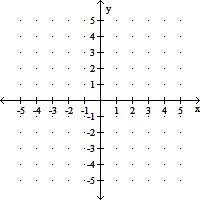
A. 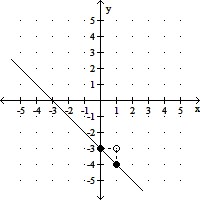
B. 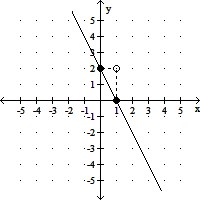
C. 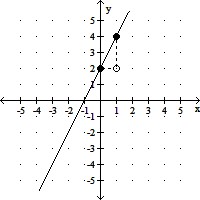
D. 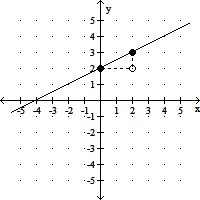
Solve the problem.The number of bacteria growing in an incubation culture increases with time according to  where x is time in days. Find the number of bacteria when x = 0 and x = 5.
where x is time in days. Find the number of bacteria when x = 0 and x = 5.
A. 4200; 1,020,600 B. 4200; 63,000 C. 12,600; 1,020,600 D. 4200; 113,400